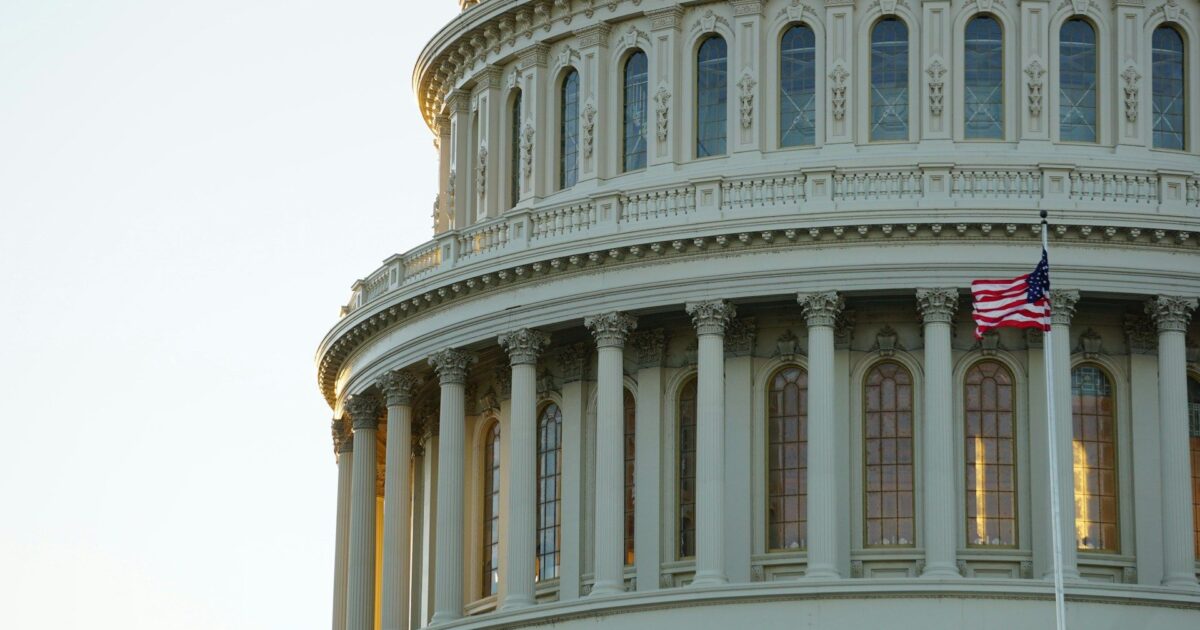As a lifelong Democrat and former Governor of Virginia, I’ve always believed our party should be on the side of growth, innovation, and economic opportunity. That’s why I’m concerned that too many Democrats are standing on the sidelines or standing in the way of one of the most transformative financial innovations of our time: blockchain and cryptocurrency.
Blockchain and crypto are already driving job creation across the country, from data centers and fintech startups to cybersecurity firms and developers working on decentralized infrastructure. This technology means more jobs, higher wages, and more money in people’s pockets, especially in communities that have been left behind by the traditional financial system.
The numbers don’t lie. Voters overwhelmingly support integrating crypto into the American financial system. More than two-thirds of Americans believe there should be clearer rules and regulations for the crypto industry, rather than leaving it largely unregulated, according to multiple industry-leading public opinion polls.
And two-thirds believe the current global financial system favors powerful interests and not them. Democrats need to understand that voters want an alternative to the current financial system that provides them with the economic freedom that is so desperately needed. That is a winning middle class message.
These numbers reflect a clear mandate for action. Yet our party’s leadership has often approached crypto with skepticism or outright hostility, creating a partisan divide on an innovation that should transcend political boundaries.
This misalignment became painfully evident during recent elections, with Republicans, including Donald Trump, having embraced crypto, while Democrats appeared out of touch with the technological revolution reshaping our economy. We cannot afford to cede this ground, especially when crypto and blockchain offer solutions to many of the economic challenges we’ve long sought to address.
The Democratic Party has always stood for expanding economic opportunity and ensuring that working people aren’t taken advantage of by powerful financial institutions. As a lifelong entrepreneur and Virginia’s former governor, I’ve seen how embracing innovation can open doors for workers, businesses, and families across every corner of our economy. Cryptocurrency and blockchain technology are no exception—they offer real tools to increase financial inclusion, expand access, and create good-paying jobs.
This isn’t just theory, it is what voters are telling us. Communities of color and younger Americans, especially young men, see real promise in crypto as a path to economic empowerment. These are core Democratic constituencies, and they’ll be essential to winning back the map in 2028 and beyond. If we want to remain the party of opportunity, we have to lead the way on forward-looking regulation—not stand in the way of progress.
Innovation in crypto means financial services for communities traditionally underserved by conventional banking systems, offering faster, cheaper transactions and broader access to capital. For minority communities, in particular, who have historically faced discrimination in traditional banking, crypto represents a path to financial empowerment through self-custody and consumer choice. Small businesses should not have to pay 3, 4 or 5% of their profits to companies when transactions can be done at a fraction of the cost. Crypto will create a system of payment that benefits consumers and small businesses everywhere.
Now, we have a crucial opportunity to correct our course. The GENIUS Act, which now awaits action in the House, presents a framework for smart, progressive regulation positioning America as a global leader in stablecoins.
Stablecoins are crypto tokens backed by U.S. dollars held in a bank that provide a cheaper and faster way of moving dollars than the dated ACH system. This legislation offers a balanced approach that both nurtures innovation, strengthens the U.S. dollar and establishes necessary guardrails.
The GENIUS Act’s provisions will streamline our financial system and eliminate costly fees that disproportionately affect small businesses and low-income Americans. It will mean Americans can send money to family abroad in milliseconds, for fractions of a penny, using dollar backed stablecoins like USDC on lightning-fast public blockchains like Solana. This is exactly the kind of forward-thinking policy that Democrats should be championing; it’s about creating a more accessible, efficient, and equitable financial system for all Americans.
Our party’s current stance isn’t just out of step with innovation—it’s out of step with the very voters we need to win. Across the country, growing numbers of Americans—especially younger voters and communities of color—see cryptocurrency as a pathway to financial opportunity and economic inclusion. These are the same voters who have long formed the backbone of the Democratic coalition. If we continue to treat this technology with suspicion rather than vision, we risk pushing away the very people we should be fighting for—not just in the next election, but for years to come.
The path forward is clear. House Democrats must embrace crypto regulation that balances innovation with consumer protection. The GENIUS Act provides this framework for stablecoins, offering an opportunity to demonstrate our commitment to fairness and financial inclusion.
This isn’t just about winning elections – though that matters – it’s about ensuring America leads the next generation of innovation and creates a platform for Americans to own their financial future. At the dawn of the internet era, the United States led the way with innovation friendly regulation and because of that we are home to nearly every major player in the online industry. Today, other nations are moving quickly to establish themselves as crypto hubs. We can either help shape this future or let the next Silicon Valley be built overseas.
For Democrats, this is a moment of choice. We can continue down our current path of skepticism and resistance, or we can embrace the transformative potential of cryptocurrency while ensuring it develops in alignment with our values of fairness, inclusion, and innovation.
The time has come for Democrats to lead the way on crypto policy. Our party’s future – and America’s competitive edge in the global financial system – may depend on it.




